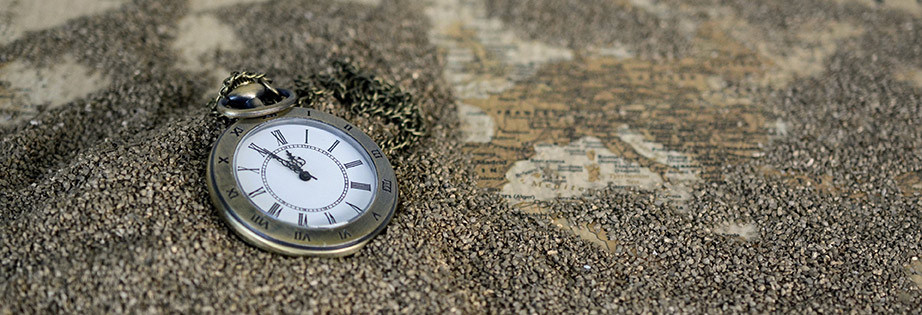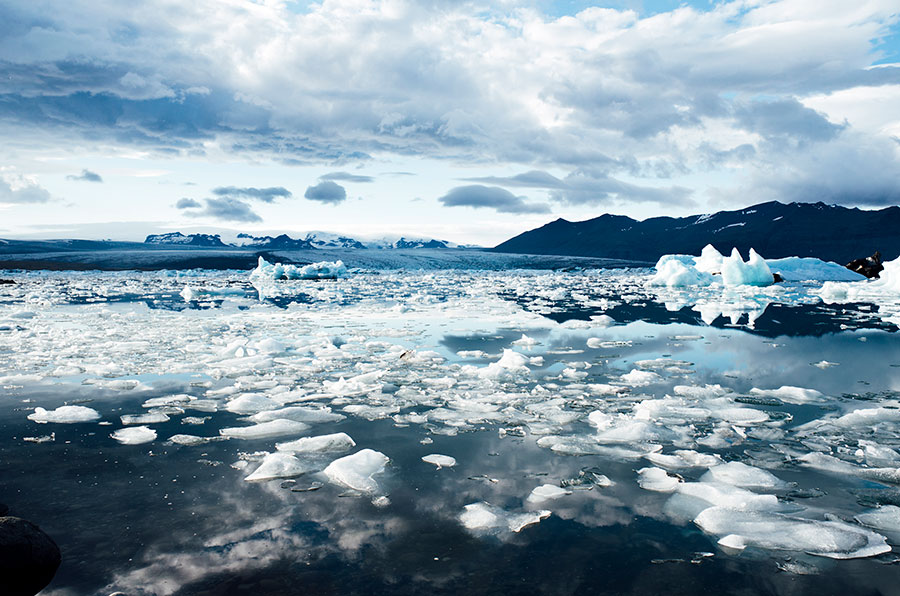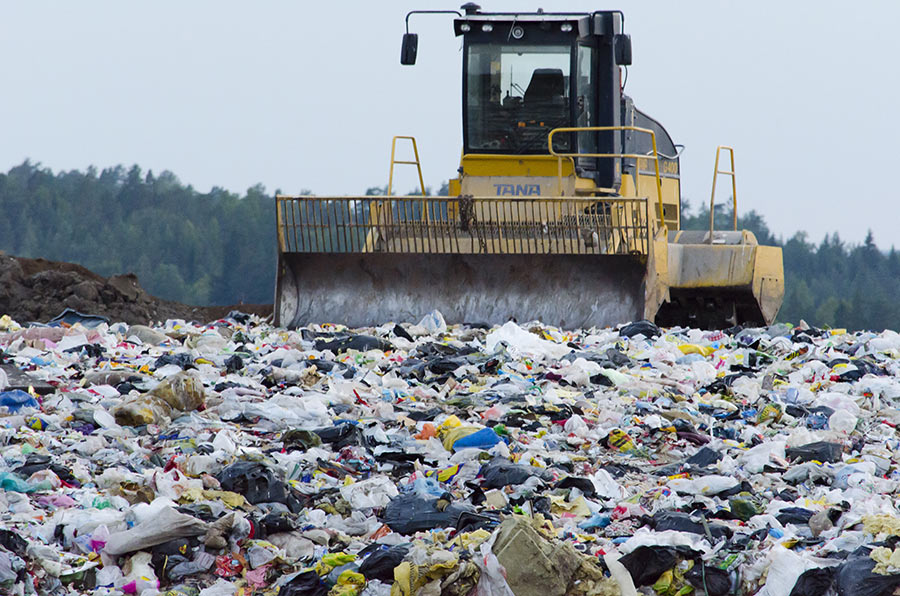
Dear Eartha,
I recently read a Washington Post article about the Doomsday Clock, and it talked a lot about climate change. The article really disturbed me, and I was wondering what I can do locally to help combat this issue?
Jessica, Silverthorne
 Jessica, I read this article as well and was very intrigued. In my opinion, the fact that the 15 Nobel laureates who make up the Bulletin of Atomic Scientists offered up such a grim assessment of the state of geopolitical affairs means we should all be at least a little bit concerned. The authors of the Post’s Op-Ed remarked, “the world is not only more dangerous now than it was a year ago; it is as threatening as it has been since World War II.” Wow, what a statement!
Not sure what all the fuss is about? For those of you who don’t know, the Doomsday Clock Is a metaphorical measure of humankind’s proximity to global catastrophe, aptly referred to as “midnight.” In 1947, the clock debuted at seven minutes to midnight. Now, the Bulletin of Atomic Scientists puts us at 11:58 PM. The further away we stray from the midnight hour the less likely we are to be mired in devastation. The closer we move to this symbolic hour the more likely we are to have a cataclysmic event that will threaten the survival of the human species – according to the Bulletin committee, of course.
To put all of this in perspective, the furthest from midnight the Doomsday Clock has been since its inception was 17 minutes in 1991 with the dissolution of the Soviet Union. On the other hand, the closest we have ever been to the Clock striking midnight was during the Cold War in 1953 when we reached two minutes ‘til … and now again in 2018. Just 65 years later we are back in the same boat!
For 60 years the threat of nuclear war has traditionally been the overriding factor in determining which way this pendulum swings. But in 2007, climate change – and other new developments in the life sciences and technology –started to play a more prominent role in this minutes to midnight scenario. And, while we might not have much of a say in other geopolitical affairs, individuals can take a stand on climate change and help move this clock in the other direction once again.
Don’t be overwhelmed by the global nature of the problem. There are a myriad of things that you can do right now to reduce your carbon footprint including composting, recycling, and reducing your home energy use.
Jessica, I read this article as well and was very intrigued. In my opinion, the fact that the 15 Nobel laureates who make up the Bulletin of Atomic Scientists offered up such a grim assessment of the state of geopolitical affairs means we should all be at least a little bit concerned. The authors of the Post’s Op-Ed remarked, “the world is not only more dangerous now than it was a year ago; it is as threatening as it has been since World War II.” Wow, what a statement!
Not sure what all the fuss is about? For those of you who don’t know, the Doomsday Clock Is a metaphorical measure of humankind’s proximity to global catastrophe, aptly referred to as “midnight.” In 1947, the clock debuted at seven minutes to midnight. Now, the Bulletin of Atomic Scientists puts us at 11:58 PM. The further away we stray from the midnight hour the less likely we are to be mired in devastation. The closer we move to this symbolic hour the more likely we are to have a cataclysmic event that will threaten the survival of the human species – according to the Bulletin committee, of course.
To put all of this in perspective, the furthest from midnight the Doomsday Clock has been since its inception was 17 minutes in 1991 with the dissolution of the Soviet Union. On the other hand, the closest we have ever been to the Clock striking midnight was during the Cold War in 1953 when we reached two minutes ‘til … and now again in 2018. Just 65 years later we are back in the same boat!
For 60 years the threat of nuclear war has traditionally been the overriding factor in determining which way this pendulum swings. But in 2007, climate change – and other new developments in the life sciences and technology –started to play a more prominent role in this minutes to midnight scenario. And, while we might not have much of a say in other geopolitical affairs, individuals can take a stand on climate change and help move this clock in the other direction once again.
Don’t be overwhelmed by the global nature of the problem. There are a myriad of things that you can do right now to reduce your carbon footprint including composting, recycling, and reducing your home energy use.
 Did you know that as a whole the United States wastes more than $160 billion in food a year, accounting for nearly 40 percent of what we throw away? If you simply compost your food scraps, you will minimize greenhouse gas emissions by avoiding the production of methane these organic materials would otherwise emit while sitting in landfills. The same goes for recycling. When we reuse and recycle products, less energy is needed to extract, transport and process those materials to manufacture new products.
In terms of home energy use, here’s another factoid for you: the U.S. residential segment accounts for 21 percent of all energy consumption and is responsible for 20 percent of our country’s carbon emissions. You can make a difference here, too! There are a variety of ways in which you can reduce your energy use by upgrading to energy efficient appliances, replacing your boiler or furnace, upgrading your home’s insulation, adding energy efficient light bulbs, and so on. For anyone interested in decreasing energy use at home, I always recommend signing up for a home energy audit to find out what your biggest energy wasters are and what you should do about it.
Jessica, this is just the tip of the iceberg on what you can do locally to combat climate change. However, when you boil it down to the nitty gritty, people just need to be aware that climate change is a real issue and that some simple behavioral changes can go a long way.
As Bulletin official Lawrence M. Krauss said in regard to the Doomsday Clock, “It is not yet midnight, and we have moved back from the brink in the past. Whether we do so in the future may be in your hands.”
Ask Eartha Steward is written by the staff at the High Country Conservation Center, a nonprofit organization dedicated to waste reduction and resource conservation. Submit questions to Eartha at eartha@highcountryconservation.org.
Did you know that as a whole the United States wastes more than $160 billion in food a year, accounting for nearly 40 percent of what we throw away? If you simply compost your food scraps, you will minimize greenhouse gas emissions by avoiding the production of methane these organic materials would otherwise emit while sitting in landfills. The same goes for recycling. When we reuse and recycle products, less energy is needed to extract, transport and process those materials to manufacture new products.
In terms of home energy use, here’s another factoid for you: the U.S. residential segment accounts for 21 percent of all energy consumption and is responsible for 20 percent of our country’s carbon emissions. You can make a difference here, too! There are a variety of ways in which you can reduce your energy use by upgrading to energy efficient appliances, replacing your boiler or furnace, upgrading your home’s insulation, adding energy efficient light bulbs, and so on. For anyone interested in decreasing energy use at home, I always recommend signing up for a home energy audit to find out what your biggest energy wasters are and what you should do about it.
Jessica, this is just the tip of the iceberg on what you can do locally to combat climate change. However, when you boil it down to the nitty gritty, people just need to be aware that climate change is a real issue and that some simple behavioral changes can go a long way.
As Bulletin official Lawrence M. Krauss said in regard to the Doomsday Clock, “It is not yet midnight, and we have moved back from the brink in the past. Whether we do so in the future may be in your hands.”
Ask Eartha Steward is written by the staff at the High Country Conservation Center, a nonprofit organization dedicated to waste reduction and resource conservation. Submit questions to Eartha at eartha@highcountryconservation.org.
 Jessica, I read this article as well and was very intrigued. In my opinion, the fact that the 15 Nobel laureates who make up the Bulletin of Atomic Scientists offered up such a grim assessment of the state of geopolitical affairs means we should all be at least a little bit concerned. The authors of the Post’s Op-Ed remarked, “the world is not only more dangerous now than it was a year ago; it is as threatening as it has been since World War II.” Wow, what a statement!
Not sure what all the fuss is about? For those of you who don’t know, the Doomsday Clock Is a metaphorical measure of humankind’s proximity to global catastrophe, aptly referred to as “midnight.” In 1947, the clock debuted at seven minutes to midnight. Now, the Bulletin of Atomic Scientists puts us at 11:58 PM. The further away we stray from the midnight hour the less likely we are to be mired in devastation. The closer we move to this symbolic hour the more likely we are to have a cataclysmic event that will threaten the survival of the human species – according to the Bulletin committee, of course.
To put all of this in perspective, the furthest from midnight the Doomsday Clock has been since its inception was 17 minutes in 1991 with the dissolution of the Soviet Union. On the other hand, the closest we have ever been to the Clock striking midnight was during the Cold War in 1953 when we reached two minutes ‘til … and now again in 2018. Just 65 years later we are back in the same boat!
For 60 years the threat of nuclear war has traditionally been the overriding factor in determining which way this pendulum swings. But in 2007, climate change – and other new developments in the life sciences and technology –started to play a more prominent role in this minutes to midnight scenario. And, while we might not have much of a say in other geopolitical affairs, individuals can take a stand on climate change and help move this clock in the other direction once again.
Don’t be overwhelmed by the global nature of the problem. There are a myriad of things that you can do right now to reduce your carbon footprint including composting, recycling, and reducing your home energy use.
Jessica, I read this article as well and was very intrigued. In my opinion, the fact that the 15 Nobel laureates who make up the Bulletin of Atomic Scientists offered up such a grim assessment of the state of geopolitical affairs means we should all be at least a little bit concerned. The authors of the Post’s Op-Ed remarked, “the world is not only more dangerous now than it was a year ago; it is as threatening as it has been since World War II.” Wow, what a statement!
Not sure what all the fuss is about? For those of you who don’t know, the Doomsday Clock Is a metaphorical measure of humankind’s proximity to global catastrophe, aptly referred to as “midnight.” In 1947, the clock debuted at seven minutes to midnight. Now, the Bulletin of Atomic Scientists puts us at 11:58 PM. The further away we stray from the midnight hour the less likely we are to be mired in devastation. The closer we move to this symbolic hour the more likely we are to have a cataclysmic event that will threaten the survival of the human species – according to the Bulletin committee, of course.
To put all of this in perspective, the furthest from midnight the Doomsday Clock has been since its inception was 17 minutes in 1991 with the dissolution of the Soviet Union. On the other hand, the closest we have ever been to the Clock striking midnight was during the Cold War in 1953 when we reached two minutes ‘til … and now again in 2018. Just 65 years later we are back in the same boat!
For 60 years the threat of nuclear war has traditionally been the overriding factor in determining which way this pendulum swings. But in 2007, climate change – and other new developments in the life sciences and technology –started to play a more prominent role in this minutes to midnight scenario. And, while we might not have much of a say in other geopolitical affairs, individuals can take a stand on climate change and help move this clock in the other direction once again.
Don’t be overwhelmed by the global nature of the problem. There are a myriad of things that you can do right now to reduce your carbon footprint including composting, recycling, and reducing your home energy use.
 Did you know that as a whole the United States wastes more than $160 billion in food a year, accounting for nearly 40 percent of what we throw away? If you simply compost your food scraps, you will minimize greenhouse gas emissions by avoiding the production of methane these organic materials would otherwise emit while sitting in landfills. The same goes for recycling. When we reuse and recycle products, less energy is needed to extract, transport and process those materials to manufacture new products.
In terms of home energy use, here’s another factoid for you: the U.S. residential segment accounts for 21 percent of all energy consumption and is responsible for 20 percent of our country’s carbon emissions. You can make a difference here, too! There are a variety of ways in which you can reduce your energy use by upgrading to energy efficient appliances, replacing your boiler or furnace, upgrading your home’s insulation, adding energy efficient light bulbs, and so on. For anyone interested in decreasing energy use at home, I always recommend signing up for a home energy audit to find out what your biggest energy wasters are and what you should do about it.
Jessica, this is just the tip of the iceberg on what you can do locally to combat climate change. However, when you boil it down to the nitty gritty, people just need to be aware that climate change is a real issue and that some simple behavioral changes can go a long way.
As Bulletin official Lawrence M. Krauss said in regard to the Doomsday Clock, “It is not yet midnight, and we have moved back from the brink in the past. Whether we do so in the future may be in your hands.”
Ask Eartha Steward is written by the staff at the High Country Conservation Center, a nonprofit organization dedicated to waste reduction and resource conservation. Submit questions to Eartha at eartha@highcountryconservation.org.
Did you know that as a whole the United States wastes more than $160 billion in food a year, accounting for nearly 40 percent of what we throw away? If you simply compost your food scraps, you will minimize greenhouse gas emissions by avoiding the production of methane these organic materials would otherwise emit while sitting in landfills. The same goes for recycling. When we reuse and recycle products, less energy is needed to extract, transport and process those materials to manufacture new products.
In terms of home energy use, here’s another factoid for you: the U.S. residential segment accounts for 21 percent of all energy consumption and is responsible for 20 percent of our country’s carbon emissions. You can make a difference here, too! There are a variety of ways in which you can reduce your energy use by upgrading to energy efficient appliances, replacing your boiler or furnace, upgrading your home’s insulation, adding energy efficient light bulbs, and so on. For anyone interested in decreasing energy use at home, I always recommend signing up for a home energy audit to find out what your biggest energy wasters are and what you should do about it.
Jessica, this is just the tip of the iceberg on what you can do locally to combat climate change. However, when you boil it down to the nitty gritty, people just need to be aware that climate change is a real issue and that some simple behavioral changes can go a long way.
As Bulletin official Lawrence M. Krauss said in regard to the Doomsday Clock, “It is not yet midnight, and we have moved back from the brink in the past. Whether we do so in the future may be in your hands.”
Ask Eartha Steward is written by the staff at the High Country Conservation Center, a nonprofit organization dedicated to waste reduction and resource conservation. Submit questions to Eartha at eartha@highcountryconservation.org.
